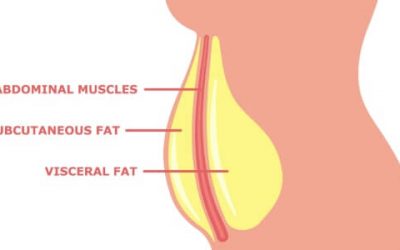I was in two minds whether to choose the subject of food supplements as a topic for this blog post, if I’m being honest.
The reason being that the vast majority of recreational trainees (people who are not competitive athletes, basically) would probably benefit far, far more from improving the quality and duration of their sleep and making sure they eat proper, nutritious single-ingredient foods than using any food supplement.
And in my experience it’s often the people who have the worst lifestyles that are the most likely to get fixated by the latest fad (new training methods that have no rational basis but look cool on youtube, strange exercise equipment that promises unbelievable results, etc) and this certainly applies to food supplements.
But, having said that; at the end of the day, supplements are a fact of life nowadays. And they are without a doubt one of the most misunderstood aspects of the fitness/health industry, so it’s probably worth looking at some of them and discussing how they work, and if they actually do what the ads say they do.
There are so many different types of food supplement out there that it would be easy to fill a book with them ( and people have!), so really this is just going to skim the surface of a very very broad topic. We’ll just briefly examine some of the more popular types of supplement.
We’ll begin with something familiar to almost everyone: The Multivitamin.
Basically a collection of various amounts of different vitamins that are thought to promote optimal health and physical wellbeing.
There is no strong argument against taking a multivitamin once you stay within the recommended dosage (in theory it is possible to “overdose” on certain vitamins but the amounts would have to be extreme …and even then it would be unlikely for reasons we shall mention later in this paragraph), but the classic recommendation to someone suffering a cold to “lash the vitamin C into you!” is pretty meaningless, as it typically takes at least several days to affect a change in the levels of a particular vitamin in the body (by which time your cold will have come and gone!).
There is also a maximum amount of a given vitamin that your body can absorb, and many multivitamins contain amounts far in excess of this. Which basically means that you are absorbing only a very small amount of what you are paying for and peeing out the rest!! But do they actually do anything, will taking a multivitamin make me any healthier? The short answer is probably, a little, but not as much as people think. Anyone with a diet that contains enough different fruits and vegetables will probably get sufficient amounts of the vitamins and minerals they need from their food.
There can be valid reasons for taking increased levels of specific vitamin(s) (for example, if you have a deficiency, or if you are preganant) but this is generally something a medical professional would advise on.

Next on our list is Whey Protein. Now, personally, I would not classify whey as a supplement; I would consider it a food (whey is a by-product of the cheese making process and has been around a very long time. Think of the nursery rhyme about Little Miss Muffet!). But it comes up in conversation all the time whenever sports supplements are discussed so it’s been included here.
Most of us nowadays realise the importance of adequate protein intake. Protein-rich foods assist in the maintenance of lean tissue (muscle) and help provide vital recovery in the hours and days after physical exercise. Eating a good source of protein (typically with some simple carbs such as fruit) after training helps ensure we maximise gains from a tough session.
Protein powders that are mixed with water feature a wide variety of types of protein, from pea protein to soy to casein (the kind of protein found in milk). But whey is the most common type in protein drinks for a couple of reasons. First of all, it is a complete protein (which technically means it contains all the essential amino acids, but basically…complete proteins are usually from animal sources and tend to be viewed as more nutritionally beneficial) and second of all, whey is digested quickly, and for this reason it is viewed as ideal for consuming immediately after training.
Whey protein shakes can be a valid way of helping you get enough protein in your diet, and there is a fairly strong argument for drinking them just after exercise in order to maximise the benefits of certain types of training. Personally I would usually just eat something easily digestible (ie chicken) with a piece of fruit immediately after training but if this isn’t practical there’s nothing wrong with a shake. As with everything else, trust your source and read the ingredients. A lot of protein powders can be full of sugar and additives.
Staying with the theme of sports supplements, one of the most popular is Creatine Monohydrate. Without getting too technical, creatine monohydrate is an amino acid that occurs naturally in the body. It is largely stored in our skeletal muscle, and it is closely associated with the chemical processes that fuel certain kinds of muscular activity. The idea behind creatine monohydrate supplements is that increasing the amount of this substance in our body will help us perform these activities better, and for longer.
Creatine levels in the body are increased when we eat certain foods, so if you eat a steak, you are taking a creatine supplement!
Although people may not realise it, the use of creatine supplements has been around since the 1970s, and research into their uses and potential side-effects has been ongoing for almost as long. It is actually one of the most heavily-researched sports supplements on the market, which is probably down to the length of time it has been in use and also because of its popularity.
(Now is a good time to mention something; every now and then, when the topic of sports supplements appears in the media, there will invariably be someone who mentions them in the same breath as steroids. It is important to point out that neither creatine, nor whey protein, are steroids. They are nothing like steroids. They should never be spoken of in the same sentence as the word steroids unless they are preceded with “do you know what isn’t a steroid?”. Regardless of our opinion of sports supplements generally, and personally I don’t have a strong opinion one way or the other, having the correct information is vital. If an “expert” conflates the use of supplements with steroids, they are either trying to be deliberately provocative by saying something incorrect, or else they are not an “expert”).
As far as side-effects go, the only side-effect of creatine supplementation that decades of research can confirm is a risk of cramps if a person is dehydrated (some people report some stomach sensitivity too). But quite frankly anyone who thinks they train hard enough to need a sports supplement but isn’t doing something as simple as drinking enough water is wasting their money. Look after the big things first; eat well, sleep lots, recover properly, and drink enough water! If you can’t honestly say you do all these things, you have no business supplementing your diet until you do.
Does creatine work? The short answer is yes, by and large, but again, probably not as much as you think (do you see a theme developing here??). For people who perform certain kinds of physical activities, such as strength training or sprinting, there is a strong scientific argument that creatine supplementation may improve performance. But what we have to remember is that in scientific terms, a “significant difference” of 4 or 5 % is huge, but for most gym goers it probably wouldn’t even be noticeable!

Another equally controversial category of supplements is the Pre-Workout drink. Very simply, the major active ingredient that is in almost every pre-workout supplement is caffeine. As far as whether caffeine aids performance in certain physical activities; just as simply… yes it does. Research is pretty unequivocal on this. The reason this kind of supplement is controversial is that the amounts of caffeine (and sugar) they contain is often excessive. We could easily fill another blog post on this topic alone but suffice to say, if you feel you need a stimulant in order to exercise, you should get sufficient caffeine from a pre-training double espresso.
Finally (and there is no particular order to these choices, I’ve just tried to select a few different categories or types of supplement that people might wonder about), something that has received a lot of publicity over the last few years is Fish Oil supplements. Suggested benefits, among many, include improving high blood pressure, high cholesterol, and general cardiac function, aiding body composition and weight management, and maintaining healthy joints. The idea here, as with most food supplements, is that certain health benefits appeared to be associated with eating types of oily fish. Research helped to identify the specific nutrients that are believed to be responsible for these benefits, and now we can just purchase the nutrients in capsule form without having to eat the food that contains them. Again, this is pretty much the blueprint for the entire supplement industry!
There are one or two minor downsides to fish oils. Anyone with a sensitive stomach should try to take them with food and to start with very small doses. Some research suggests another, more serious, potential side effect: thinning of the blood. For most people this will probably not be an issue, but anyone on prescribed blood thinners would probably have to take this into account before using fish oil supplements, but again, this is something your doctor would talk to you about.
In my own experience as strength and conditioning coach to a number of boxers and fighters, I would tend to avoid recommending they use fish oil supplements as it could theoretically affect blood injuries sustained during competition.
As for whether fish oils do what they say on the tin, the jury is probably still out, but there is certainly strong evidence to support their use. The quality of the product is important. Many cheaper fish oil brands will contain little or none of the fatty acids EPA and DHA, which researchers say may be the most beneficial. In theory if you are eating enough oily fish you would probably get sufficient amounts of these fatty acids from your diet alone, but realistically most people don’t eat fish that regularly.
Hopefully we’ve been able to shed a little light on a subject that is clouded in a lot of pseudo-science and misinformation.
If there is one thing to take away from this piece, it should be that a lot of people don’t look after themselves enough (sleep duration/quality, eating properly, etc) to justify supplementing their diet with anything. If you fall into this category, no matter how hard you train (and the harder you train the more important it becomes to make sure you are recovering properly), then fix the big things in your life before worrying about the little things.



